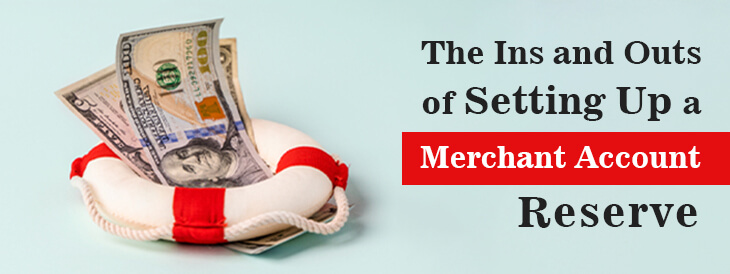The Ins and Outs of Setting Up a Merchant Account Reserve
The Ins and Outs of Setting Up a Merchant Account Reserve

If you run a business that accepts credit card payments, chances are you’ve heard of a Merchant Account Reserve. But what exactly is it, and why is it necessary?.
In simple terms, a Merchant Account Reserve is a portion of funds that are held by a payment processor to protect against potential losses or chargebacks.
In this blog post, we’ll dive into the details of setting up a Merchant Account Reserve and how it can benefit your business.
What is a Merchant Account Reserve?
In the simplest terms, a merchant account reserve is a financial security measure implemented by merchant account providers. It serves as a safety net, a pool of funds gathered and set aside from your sales transactions.
This kitty is intended to cover potential financial mishaps such as chargebacks, returned items, and instances of fraud. The specific amount held in the reserve is not a fixed figure and varies, mostly based on the level of risk your business represents to the account provider.
Some Related Blogs
- Maximizing Profits With Cbd: Understanding The Benefits Of A Merchant Account
- Secure Payment Processing For Your Ecigarette Business | Binary Gateways
- Understanding The Difference Between Agents And Merchants
- The Future Of B2b Payments: What To Expect
Why is a Merchant Account Reserve Necessary?
Think of a merchant account reserve as a safety cushion for account providers. If your business hits a rough patch with an influx of chargebacks or even bankruptcy, the reserve jumps in to absorb those costs.
It’s essentially a financial buffer, guarding the account provider against potential losses. But, it’s not just about provider protection; it’s also about customer safety. Card networks like Visa or Mastercard often mandate these reserves as part of their customer protection policies.
So, while it may seem like just another business requirement, it plays a significant role in fostering a stable, secure transaction environment.
Different Types of Merchant Account Reserves
Understanding the types of merchant account reserves is crucial to making informed business decisions. We have three major types: Rolling, fixed, and capped reserves.
With a rolling reserve, a certain portion of daily sales is held for a pre-decided period. In contrast, a fixed reserve means a predetermined amount is held until it hits a specific threshold.
Lastly, a capped reserve mirrors a fixed reserve in many ways, but it includes an upper limit that, once reached, no additional funds are withheld.
Each of these offers distinct benefits and drawbacks, making it important to consider your business’s unique needs and risks when selecting a type.
Steps to Set Up a Merchant Account Reserve
Embarking on setting up your merchant account reserve requires negotiation with your account provider.
This involves determining the type of reserve that suits your business model, whether it’s rolling, fixed, or capped.
Discuss the percentage or amount to be set aside, along with the period it will be held.
Familiarize yourself with your obligations as a merchant, and also comprehend the circumstances that can prompt the release of your reserve.
Remember, every detail counts when establishing your merchant account reserve, ensuring it effectively safeguards your business.
How to Reduce the Amount Held in Reserve
Want to trim down your reserve? While it may be challenging, it’s certainly feasible. Start by establishing a solid negotiation foundation with your merchant provider. The key lies in proving that your business poses a low chargeback and fraud risk.
Provide evidence of a history with minimal chargebacks, robust financial standings, and effective business protocols.
Remember, confidence and solid evidence go hand-in-hand when aiming to minimize your reserve. You have to convince your provider that your business is less of a risk than it may initially appear.
The Impact of a Merchant Account Reserve on Cash Flow
A merchant account reserve can have a real influence on your cash flow dynamics. The funds tucked away in reserve are essentially off-limits, which can pose a squeeze on your day-to-day operations, particularly if your business operates on thin margins.
Hence, it’s vital to judiciously manage your financial resources and integrate the potential impact of a merchant account reserve into your cash flow strategies.
By doing so, you can help ensure the financial health of your business even as you maintain this crucial safeguard against potential financial hiccups.
Navigating Merchant Account Reserves with Professional Guidance
Navigating the terrain of merchant account reserves can feel like threading a maze. That’s where professional assistance can come into play.
Industry experts with a wealth of experience can illuminate the intricacies of these reserves, enabling you to negotiate more favorable terms with your account provider.
Their guidance can also be instrumental in crafting effective strategies to mitigate the impacts on your cash flow and provide insights on lowering your business risk profile.
Thus, reducing your reserve obligations. After all, two heads are better than one, especially when one is a seasoned professional in merchant account reserves.
![]()
Email us anytime!
Email customer service 24/7 at info@binarygateways.com
![]()
Call us anytime!
Reach customer care 24/7 at (801) 761-5001
